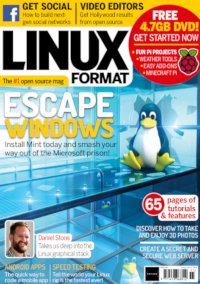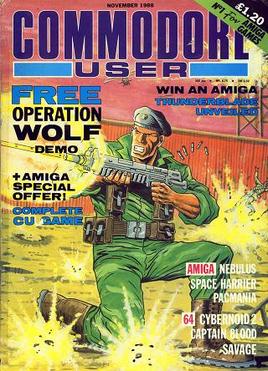
Commodore User, later renamed to CU Amiga, is a series of American and British magazines published by Commodore International.

Tux Racer is a 2000 open-source winter sports racing video game starring the Linux mascot, Tux the penguin. It was originally developed by Jasmin Patry as a computer graphics project at the University of Waterloo. Later on, Patry and the newly founded Sunspire Studios, composed of several former students of the university, expanded it. In the game, the player controls Tux as he slides down a course of snow and ice collecting herrings.
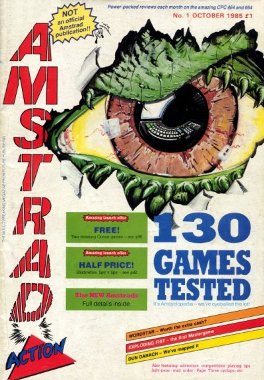
Amstrad Action was a monthly magazine, published in the United Kingdom, which catered to owners of home computers from the Amstrad CPC range and later the GX4000 console.
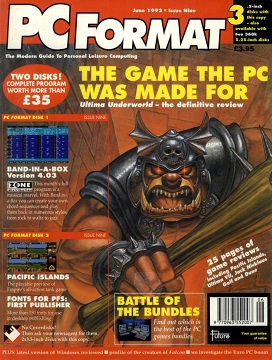
PC Format was a computer magazine published in the United Kingdom by Future plc, and licensed to other publishers in countries around the world. In publication between 1991 and 2015, it was part of Future plc's Format series of magazines that include articles about games, entertainment and how to get the most out of the platform. Despite the occasional mention of alternatives, PC Format takes the term 'PC' to mean a Microsoft Windows-based computer.
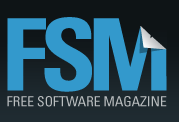
Free Software Magazine is a Web site that produces a mostly free-content online magazine about free software.
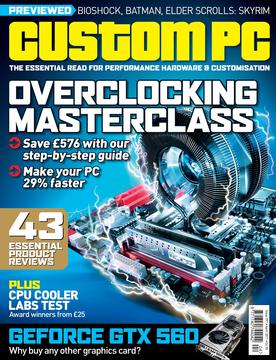
Custom PC was a UK-based computer magazine originally published by Dennis Publishing Ltd and subsequently sold to Raspberry Pi Trading Ltd. It was aimed at PC hardware enthusiasts, covering topics such as modding, overclocking, and PC gaming. The first issue was released in October 2003 and it was published monthly until the final issue, number 235, was released in February 2023.

TechLife is an Australian general computer magazine, published monthly by Future Australia.
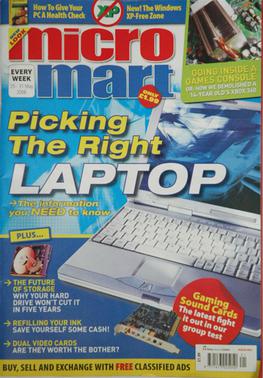
Micro Mart was a weekly computer magazine published in the United Kingdom by Dennis Publishing Ltd. As of 2015, it had a circulation of 5,422. In a letter to subscribers in December 2016 it was announced that the magazine would cease publication with issue No 1445 : "After 30 amazing years of telling it like it is, Micro Mart magazine is logging off."
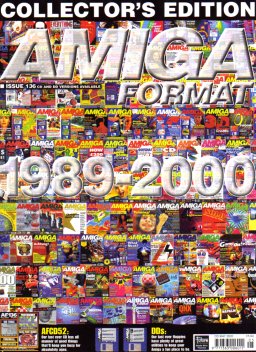
Amiga Format was a British computer magazine for Amiga computers, published by Future plc. The magazine lasted 136 issues from 1989 to 2000. The magazine was formed when, in the wake of selling ACE to EMAP, Future split the dual-format title ST/Amiga Format into two separate publications. In 1991, the magazine was selling 135,000 copies a month.

MacFormat is the UK's biggest computer magazine aimed at Macintosh users. It published 13 issues per year. It is published by Future plc, and has been since 1993.
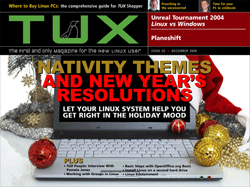
Tux Magazine was an American Linux magazine aimed at Linux desktop end users, specifically those who use the KDE desktop environment. The mission of the magazine was to help Linux take over the desktop market. It was headquartered in Seattle, Washington.

Linux User & Developer was a monthly magazine about Linux and related Free and open source software published by Future. It was a UK magazine written specifically for Linux professionals and IT decision makers. It was available worldwide in newsagents or via subscription, and it could be downloaded via Zinio or Apple's Newsstand.

dwm is a minimalist dynamic window manager for the X Window System developed by Suckless that has influenced the development of several other X window managers, including xmonad and awesome. It is externally similar to wmii, but internally much simpler. dwm is written purely in C for performance and lacks any configuration interface besides editing the source code. One of the project's guidelines is that the source code is intended to never exceed 2000 SLOC, and options meant to be user-configurable are all contained in a single header file.
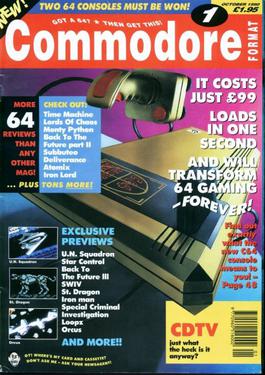
Commodore Format was a British magazine for users of the Commodore 64 home computer. It was published on the third Thursday of every month. All 61 issues were produced by Future plc. These came towards the end of the machine's commercial life - from October 1990 until October 1995.
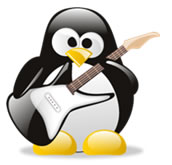
TuxGuitar is a free and open-source tablature editor, which includes features such as tablature editing, score editing, and import and export of Guitar Pro gp3, gp4, and gp5 files. In addition, TuxGuitar's tablature and staff interfaces function as basic MIDI editors.
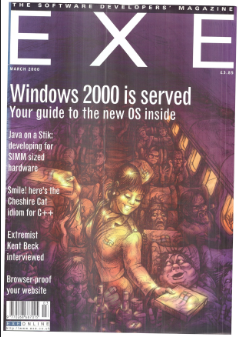
.EXE Magazine was a monthly computer software magazine published in the United Kingdom from 1986 to 2000.

Taskwarrior is an open-source, cross platform time and task management tool, used to keep track of and handle tasks. It uses a command-line interface, although since its inception, graphical user interface wrappers have also been created.

Emmabuntüs is a Linux distribution derived from Debian and designed to facilitate the restoration of computers donated to humanitarian organizations like the Emmaüs Communities.

Linux Voice was a Linux and open source magazine which began publication in the UK in April 2014. It was sold on news-stands around the world.
